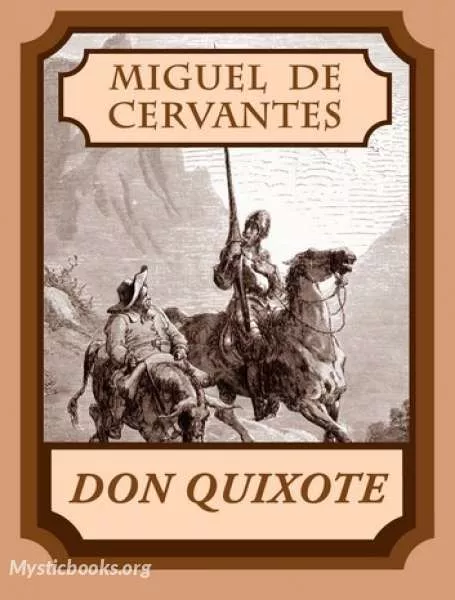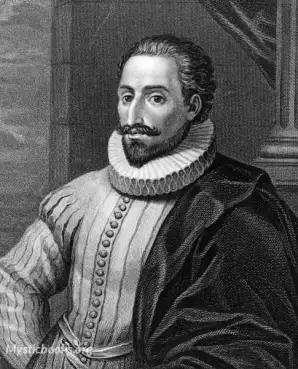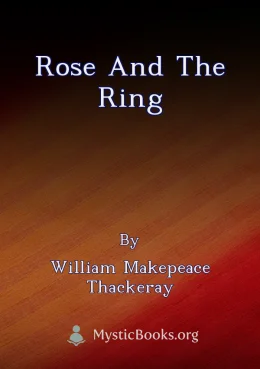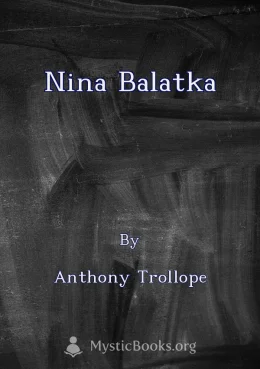
Don Quixote Vol. 01
by Miguel de Cervantes Saavedra
'Don Quixote Vol. 01' Summary
Part 1
The First Sally (Chapters 1–5)
Alonso Quixano, the protagonist of the novel (though he is not given this name until much later in the book), is a hidalgo (member of the lesser Spanish nobility), nearing 50 years of age, living in an unnamed section of La Mancha with his niece and housekeeper, as well as a boy who is never heard of again after the first chapter. Although Quixano is usually a rational man, in keeping with the humoral physiology theory of the time, not sleeping adequately—because he was reading—has caused his brain to dry. Quixano's temperament is thus choleric, the hot and dry humor. As a result, he is easily given to anger and believes every word of these fictional books of chivalry to be true.
Imitating the protagonists of these books, he decides to become a knight errant in search of adventure. To these ends, he dons an old suit of armor, renames himself "Don Quixote", names his exhausted horse "Rocinante", and designates Aldonza Lorenzo, a neighboring farm girl, as his lady love, renaming her Dulcinea del Toboso, while she knows nothing of this. Expecting to become famous quickly, he arrives at an inn, which he believes to be a castle, calls the prostitutes he meets "ladies" (doncellas), and demands that the innkeeper, whom he takes to be the lord of the castle, dub him a knight. He spends the night holding vigil over his armor and becomes involved in a fight with muleteers who try to remove his armor from the horse trough so that they can water their mules. In a pretended ceremony, the innkeeper dubs him a knight to be rid of him and sends him on his way.
Don Quixote next "frees" a slave named Andres who is tied to a tree and beaten by his master, and makes his master swear to treat the slave fairly, but the slave's beating is continued (and in fact redoubled) as soon as Quixote leaves. Don Quixote then encounters traders from Toledo, who "insult" the imaginary Dulcinea. He attacks them, only to be severely beaten and left on the side of the road, and is returned to his home by a neighbouring peasant.
Destruction of Don Quixote's library (Chapters 6 and 7)
While Don Quixote is unconscious in his bed, his niece, the housekeeper, the parish curate, and the local barber burn most of his chivalric and other books. A large part of this section consists of the priest deciding which books deserve to be burned and which to be saved. It is a scene of high comedy: If the books are so bad for morality, how does the priest know them well enough to describe every naughty scene? Even so, this gives an occasion for many comments on books Cervantes himself liked and disliked. For example, Cervantes' own pastoral novel La Galatea is saved, while the rather unbelievable romance Felixmarte de Hyrcania is burned. After the books are dealt with, they seal up the room which contained the library, later telling Don Quixote that it was the action of a wizard (encantador).
The Second Sally
After a short period of feigning health, Don Quixote requests his neighbour, Sancho Panza, to be his squire, promising him a petty governorship (ínsula). Sancho is a poor and simple farmer but more practical than the head-in-the-clouds Don Quixote and agrees to the offer, sneaking away with Don Quixote in the early dawn. It is here that their famous adventures begin, starting with Don Quixote's attack on windmills that he believes to be ferocious giants.
The two next encounter two Benedictine friars travelling on the road ahead of a lady in a carriage. The friars are not travelling with the lady, but happen to be travelling on the same road. Don Quixote takes the friars to be enchanters who hold the lady captive, knocks a friar from his horse, and is challenged by an armed Basque traveling with the company. As he has no shield, the Basque uses a pillow from the carriage to protect himself, which saves him when Don Quixote strikes him. Cervantes chooses this point, in the middle of the battle, to say that his source ends here. Soon, however, he resumes Don Quixote's adventures after a story about finding Arabic notebooks containing the rest of the story by Cid Hamet Ben Engeli. The combat ends with the lady leaving her carriage and commanding those traveling with her to "surrender" to Don Quixote.
Book Details
Authors

Miguel de Cervantes Saavedra (29 September 1547 – 22 April 1616 ) was a Spanish writer widely regarded as the greatest writer in the Spanish language, and one of the world's pre-eminent no...
Books by Miguel de Cervantes SaavedraDownload eBooks
Listen/Download Audiobook
Related books

Betrothed by Alessandro Manzoni
Set in 17th-century Lombardy, Italy, "The Betrothed" follows the intertwined destinies of Renzo and Lucia, two young lovers whose marriage plans are d...

Rose And The Ring by William Makepeace Thackeray
“Rose and the Ring” is a satirical novella by William Makepeace Thackeray that blends elements of fairy tales, social commentary, and humor. Through a...

Misrepresentative Men by Harry Graham
In "Misrepresentative Men," Harry Graham employs his signature satirical wit to offer humorous and insightful portrayals of well-known historical and...

Orgullo y Prejuicio (Vol 2) by Jane Austen
Orgullo y Prejuicio es una novela romántica clásica escrita por Jane Austen y publicada en 1813. La historia sigue a Elizabeth Bennet, una joven intel...

Notwithstanding by Mary Cholmondeley
This is a captivating novel written in the late 19th century. Set in the fictional English village of Netherton, the book weaves together the lives of...

Third Person by Henry James
The Third Person is a humorous tale that pokes fun at ghost story conventions. Two elderly sisters, competitive in their interest in the supposed ghos...

Emma by Jane Austen
Emma Woodhouse, a wealthy and independent young woman, enjoys meddling in the love lives of those around her. Despite her good intentions, her matchma...

Grüne Heinrich (zweite Fassung) by Gottfried Keller
Der Grüne Heinrich ist ein tiefgründiger Bildungsroman, der die Entwicklung des jungen Heinrich Lee, einem talentierten, aber unsteten Künstler, von d...

Nina Balatka by Anthony Trollope
Nina Balatka is a novel set in Prague that explores the complex relationship between a Catholic woman, Nina, and a Jewish man, Josef. Their love is fo...

Elective Affinities by Johann Wolfgang von Goethe
Elective Affinities explores the complexities of human relationships, particularly within the confines of marriage and societal expectations. It exami...
Reviews for Don Quixote Vol. 01
No reviews posted or approved, yet...